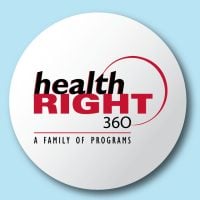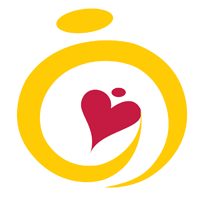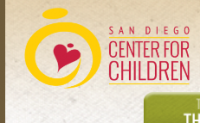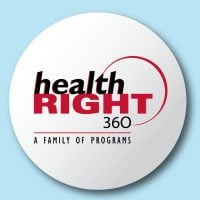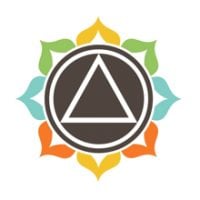North County Serenity House - Women and Children
Drug Rehab Center in Escondido, California
North County Serenity House - Women and Children provides comprehensive, CARF-accredited treatment services including detox, outpatient care, aftercare support and dual-diagnosis levels of care to help individuals achieve long-term sobriety.
Multiple patients have reported North County Serenity House - Women and Children as permanently closed.
Research other rehabs in Escondido, California, or get help finding an open facility.
About This California Facility
North County Serenity House, located in Escondido, California, stands out by providing residential alcohol and drug rehab services specifically for women and their young children. This facility, operating under HealthRight 360, is committed to fostering a gender-responsive and trauma-informed environment. Part of what makes this center unique is its comprehensive approach, offering up to 24 months of sober living and aftercare support tailored to women's needs.
- Gender-Specific Therapy: Offers tailored individual and group therapy considering the unique challenges women face in addiction and recovery.
- Long-Term Support: Provides up to 24 months of sober living, alongside vocational training and family activities, to help women rebuild their lives.
- Financial Accessibility: Services are offered regardless of the ability to pay, and various insurance plans including Medi-Cal and Medicare are accepted.
North County Serenity House is recognized for its high-quality services through its accreditation by CARF. This indicates a commitment to best practices and evidence-based approaches in treatment. Their program integrates case management, substance use education, and coping skills classes, emphasizing a pathway towards sustained sobriety and recovery.
The center focuses on treating alcoholism, opioid addiction, substance abuse, drug addiction, and related mental health issues. Through residential programs, dual diagnosis treatment, and a variety of therapeutic methods, North County Serenity House aims to address the underlying causes of addiction while supporting women and children in their journey towards healing and independence.
Genders
Ages
Modality
Additional
Accreditations

CARF
The Commission on Accreditation of Rehabilitation Facilities (CARF) is a non-profit organization that specifically accredits rehab organizations. Founded in 1966, CARF's, mission is to help service providers like rehab facilities maintain high standards of care.
Conditions and Issues Treated
A drug abuser needs help because if no one helps them, they will not leave their vicious circle.
People who abuse drugs are likely to suffer from an addiction, which can cause serious health problems. It can also cause quarrels with people around them. It is common for drug abusers to have difficulty holding down jobs or relationships, but sometimes people around them can be quite tolerant. There are cases where the families of the drug abusers do not want to see them get any help, and the subject becomes controversial.
When it comes to helping drug abusers get sober, there are many options to choose from. It is essential to state that there is no “correct” way of doing things. People are different, and they need different types of help to get over their addiction.
Opioid addiction treatment should be done in a medically supervised drug rehab. Opioid addiction treatment will include detoxification and drug rehab counseling to help both the user and their loved ones learn how to live a successful sober lifestyle. Methadone, buprenorphine, and naltrexone are three medications that can help treat opioid addiction. Individual drug rehab counseling sessions can be helpful to discuss any questions or concerns with the drug treatment program.
When addiction and psychiatric issues co-occur, the addict’s recovery is more successful when both conditions are treated. A dual diagnosis refers to a condition in which the patient is diagnosed with two health issues: addiction and bipolar disorder.
Usually, dual diagnosis sufferers are prescribed a combination of treatments for each condition. The most common therapies are psychotherapy, behavioral therapy, spiritual counseling, 12-step programs, and medication management.
Psychiatric conditions are an obstacle to recovery because they can create roadblocks to a healthy lifestyle. Drugs and alcohol may be used as a means of self-medication, which can have dangerous consequences. Over time, addicts build up a tolerance and suffer withdrawal symptoms when drug use is stopped.
With the proper treatment, dual diagnosis sufferers can overcome their conditions and achieve lasting sobriety.
Levels of Care Offered at North County Serenity House - Women and Children
This center offers a variety of custom treatment tailored to individual recovery. Currently available are Aftercare Support, Detox, Drug Rehab, Dual-Diagnosis, Outpatient, with additional therapies available as listed below.
Detoxification is the first step in drug addiction treatment. A controlled environment where symptoms can be managed with medication and close observation is provided by drug detoxification. Detoxification is an essential step in the recovery process, but it is also one of the most dangerous. Due to the potential danger, it’s critical to understand what detoxification is and how to complete it safely.
A detox program helps the person physically withdraw from drugs and helps them track their progress. So, suppose the person isn’t ready for sobriety (or relapses). In that case, the treatment professionals can catch it early and help re-orient them towards recovery.
Individuals struggling with drug addictions can get help from several treatment options, including inpatient and outpatient programs. Outpatient drug treatment programs can also provide patients with different levels of care, usually depending on the patient’s degree of addiction.
At an outpatient program in Escondido, a patient will attend a recovery program during the day and return home in the evening. Suppose a patient is struggling with drug addiction. In that case, an outpatient program can serve as an effective transition point during the recovery process.
Aftercare is a part of drug rehabilitation. It is also known as “post-treatment support.” Aftercare programs are available for addicts after they complete drug rehab. It is often the final step in the recovery process. The goal of aftercare is to ensure that addicts maintain their achievements in rehab and do not relapse. Professionals generally provide aftercare (including addiction therapists, physicians, social workers, psychologists) and involve individual and group therapy sessions.
Therapies & Programs
Couples therapy is beneficial for couples in which at least one partner has a substance use disorder. This type of therapy can help partners improve communication skills, which is an important factor in a healthy relationship. It can also help partners better understand one another so they have a greater understanding of how the other partner may be feeling.
Benefits of couples therapy include:
- Improvement in communication skills
- Increased understanding of the dynamics within a relationship
- Increased sense of support and trust in the relationship
- Better teamwork between partners/increased willingness to listen and work together
- Enhanced tolerance of each other’s shortcomings
- Improved ability to have open, honest communication with each other
Family therapy is a crucial part of drug treatment and getting sober. It is one of the most effective ways to help addicts stay on the path to long-term sobriety. When a drug addict decides that they want to try and get sober, it takes the support of every person they love to succeed. It can be incredibly difficult for loved ones to watch an addict go through the pain and suffering of withdrawal, but by being there with them and supporting them, they can help to make sure that the addiction never returns.
One of the most important parts of family therapy is the relapse prevention plan. During treatment, therapists and doctors will often sit down with the addict and their family to develop a plan in case the addict ever feels like they want to use again. This plan should involve steps the addict and family can take together to prevent them from relapsing in the future. An addict’s family can play a vital part in helping them to avoid relapse because they can spot the warning signs and help them get back on track before it becomes too much of a problem.
Group therapy helps prevent addicts from feeling isolated or unique in their situation by offering a sense of comfort and fellowship. It also creates a forum for addicts to build their support systems and learn from each other. The group therapy sessions at North County Serenity House - Women and Children occur in a group setting rather than one-on-one to create a safer, controlled environment where addicts feel comfortable.
Trauma therapy helps people dealing with addiction by allowing them to confront the traumas of their past and move past them. It is important to note that trauma therapy should not be confused with PTSD (post-traumatic stress disorder) Rather, it is used to treat the effects of trauma, which are often at the root of addiction.
Dialectical Behavior Therapy was developed in the 1980s to treat chronically suicidal individuals. It is a cognitive-behavioral therapy that combines strategies derived from Zen Buddhism, such as mindfulness training. DBT has been adapted for use with other types of psychiatric problems, including substance abuse and personality disorders. DBT aims to help patients change their thinking and behavior, instead of relying on medication.
Cognitive Behavioral Therapy (CBT) is a common therapeutic approach to help drug addicts. It teaches addicts new ways of thinking and behaving so that they can avoid relapse. There are several forms of CBT used in drug rehabilitation centers.
Cognitive Restructuring helps addicts identify faulty, negative thinking so that they can work together with the therapist to find healthier ways of thinking, resulting in better decision-making.
Cognitive Behavioral Therapy for Addiction uses the principles of CBT to help treat addiction. It focuses on specific aspects of each person’s thinking, feeling, physiology, and behavior. It aims to identify specific problems in these areas and create a personalized treatment strategy.
Entering a 12-step program allows people to accept that they struggle with an addiction on their own terms. It breaks down the process into 12 steps and gives recovering patients the ability to self help themselves without feeling rushed.
In Alcoholics Anonymous, members follow “The Big Book,” which contains guidelines for sobriety and offers support from fellow participants who have been through similar struggles. Many drug users also turn to Narcotics Anonymous or Pills Anonymous when they are looking at seeking treatment.
Both Narcotics Anonymous and Alcoholics Anonymous have 12 steps in common. They address issues that include ‘admitting there is a problem,’ taking control of the addiction, learning to listen to others without judgment, making amends, and more.
Contingency Management (CM) is one of many forms of Cognitive Behavioral Therapy (CBT) It helps people get sober/clean by rewarding them for sobriety or just staying clean. Rewards can come in many forms, like getting paid $10-$15 per drug-free urine sample or even just getting extra points towards earning something as simple as extra phone privileges. Research has shown that when people are not given any reward system upon leaving treatment, they relapse more often.
Payment Options Accepted
For specific insurance or payment methods please contact us.
Is your insurance accepted?
Ask an expert, call (888) 674-0062
MFI Recovery Center Associated Centers
Discover treatment facilities under the same provider.
- MFI Recovery Center - Riverside in Riverside, CA
- MFI Recovery Center - Banning in Banning, CA
- La Vista Recovery & Wellness Center Services in San Jacinto, CA
- MFI Recovery Center - Banning in Banning, CA
- MFI Recovery Center - Woodcrest in Riverside, CA
Learn More About MFI Recovery Center Centers
Additional Details
Specifics, location, and helpful extra information.
Escondido, California 92025 Phone Number(760) 432-4298 Meta DetailsUpdated April 15, 2024
Staff Verified
Patient Reviews
There are no reviews yet. Be the first one to write one.
Escondido, California Addiction Information
More than 3 million of California's citizens are addicted to illegal drugs. Almost 800,000 people use hard drugs, almost 5 million use marijuana, and another 2.1 million abuse alcohol every year. Other substance abuse issues such as binge drinking and teen drug use are also common. Many illegal drugs such as cocaine, heroin, methamphetamine, and marijuana are smuggled into the state from Mexico.
Escondido, CA, in particular, has an alarming number of drug-related deaths which can be attributed to the drug cartels that operate out of Mexico. Escondido has 6,741 admissions to drug and alcohol rehab facilities in 2016. This means that drug addiction and abuse are major problems in the community and that many people need help getting sober. Some of the most common treatments include inpatient and outpatient rehab, 12-step programs, and therapy.
Treatment in Nearby Cities
- Santa Cruz, CA (386.9 mi.)
- Capistrano Beach, CA (41.7 mi.)
- Ontario, CA (73.0 mi.)
- Loomis, CA (456.5 mi.)
- Manteca, CA (398.7 mi.)
Centers near North County Serenity House - Women and Children
The facility name, logo and brand are the property and registered trademarks of North County Serenity House - Women and Children, and are being used for identification and informational purposes only. Use of these names, logos and brands shall not imply endorsement. RehabNow.org is not affiliated with or sponsored by North County Serenity House - Women and Children.



